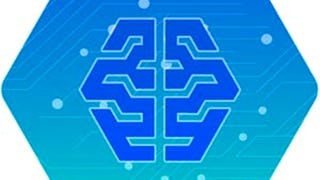Data pipelines typically fall under one of the Extract and Load (EL), Extract, Load and Transform (ELT) or Extract, Transform and Load (ETL) paradigms. This course describes which paradigm should be used and when for batch data. Furthermore, this course covers several technologies on Google Cloud for data transformation including BigQuery, executing Spark on Dataproc, pipeline graphs in Cloud Data Fusion and serverless data processing with Dataflow. Learners get hands-on experience building data pipeline components on Google Cloud using Qwiklabs.



Building Batch Data Pipelines on Google Cloud
This course is part of multiple programs.

Instructor: Google Cloud Training
Access provided by VodafoneZiggo
49,311 already enrolled
(1,710 reviews)
What you'll learn
Review different methods of data loading: EL, ELT and ETL and when to use what
Run Hadoop on Dataproc, leverage Cloud Storage, and optimize Dataproc jobs
Build your data processing pipelines using Dataflow
Manage data pipelines with Data Fusion and Cloud Composer
Skills you'll gain
Details to know

Add to your LinkedIn profile
5 assignments
See how employees at top companies are mastering in-demand skills

Build your subject-matter expertise
- Learn new concepts from industry experts
- Gain a foundational understanding of a subject or tool
- Develop job-relevant skills with hands-on projects
- Earn a shareable career certificate

There are 4 modules in this course
You will learn the critical role of a data engineer in developing and maintaining batch data pipelines, understand their core components and lifecycle, and analyze common challenges in batch data processing. You'll also identify key Google Cloud services that address these challenges.
What's included
1 assignment2 plugins
You will design scalable batch data pipelines for high-volume data ingestion and transformation. You'll also optimize batch jobs for high throughput and cost-efficiency using various resource management and performance tuning techniques.
What's included
1 assignment2 app items6 plugins
You will develop data validation rules and cleansing logic to ensure data quality within batch pipelines. You'll also implement strategies for managing schema evolution and performing data deduplication in large datasets.
What's included
1 assignment1 app item6 plugins
You will orchestrate complex batch data pipeline workflows for efficient scheduling and lineage tracking. You'll also implement robust error handling, monitoring, and observability for batch data pipelines.
What's included
2 assignments1 app item6 plugins
Earn a career certificate
Add this credential to your LinkedIn profile, resume, or CV. Share it on social media and in your performance review.
Instructor

Offered by
Why people choose Coursera for their career




Learner reviews
1,710 reviews
- 5 stars
65.96%
- 4 stars
25.73%
- 3 stars
6.02%
- 2 stars
1.46%
- 1 star
0.81%
Showing 3 of 1710
Reviewed on May 27, 2020
A great course to help understand the various wonderful options Google Cloud has to offer to move on-premise Hadoop workload to Google Cloud Platform to leverage scalability of clusters.
Reviewed on May 19, 2020
Great course teaching how to build batch pipelines through GCP technologies, and showing cool tools for data wrangling and analysis
Reviewed on Dec 1, 2020
It would be great if there can be a walkthrough for the lab session to check if the answers for interpreting the code are correct.





